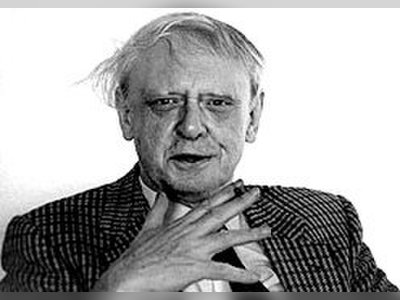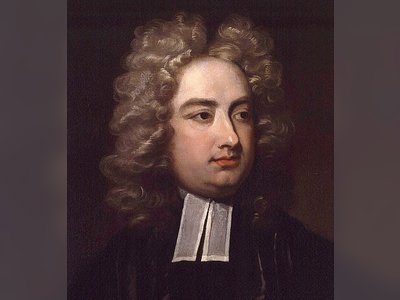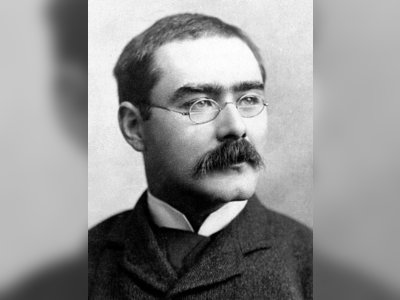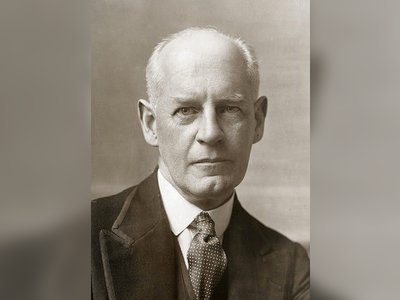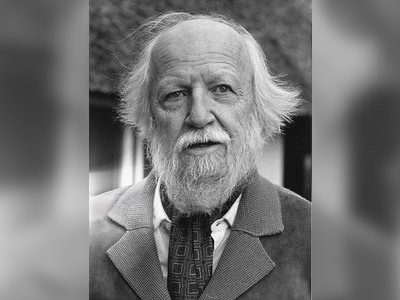British Heritage
Remember, Cherish, Learn.
beta
Ross McWhirter
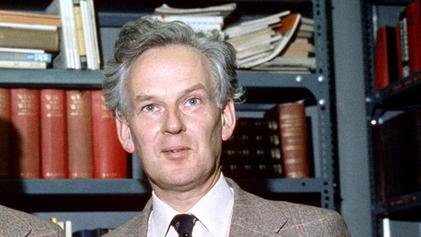
A Pillar of British Heritage.
Alan Ross McWhirter (12 August 1925 – 27 November 1975), a towering figure of the British heritage, personified a blend of intellectual prowess, dedication, and resilience. As the co-founder of the celebrated Guinness Book of Records and a significant contributor to the television programme Record Breakers, McWhirter set a new standard in the sphere of record keeping and dissemination of intriguing facts and figures. Even beyond his professional achievements, McWhirter's life carried a political dimension that provoked attention and controversy, marking his contribution to British history.
Born at "Giffnock" in Winchmore Hill, London, McWhirter was the youngest son of William McWhirter, the editor of the Sunday Pictorial, and Margaret "Bunty" Williamson. The place was named after the Giffnock Church in Glasgow, where the McWhirters were wedded. The family moved to "Aberfoyle" in Broad Walk, Winchmore Hill in 1929 as William embarked on the founding of the Northcliffe Newspapers Group chain of provincial newspapers.
McWhirter's educational journey took him to Chesterton School, Seaford, Marlborough College, and finally to Trinity College, Oxford. Between 1943 and 1946, he served as a sub-lieutenant in the Royal Naval Volunteer Reserve, contributing to the war efforts on board a minesweeper in the Mediterranean.
Following his military service, McWhirter turned his attention to journalism. In 1950, both he and his twin brother, Norris, began their careers as sports journalists. In 1951, they published 'Get to Your Marks', and that same year, they established an agency supplying factual data to Fleet Street, with the mission of providing reliable facts and figures to newspapers, yearbooks, encyclopedias, and advertisers.
Their impressive journalistic skills and extensive knowledge caught the attention of Hugh Beaver of Guinness, who, upon the recommendation of athlete and Guinness employee Christopher Chataway, offered them an interview. This meeting led to the inception of the Guinness Book of Records in 1955, with the first slim volume of 198 pages hitting the bookstands in August that year. By the end of 1955, it was the number one non-fiction bestseller in the UK.
The brothers became regular faces on the BBC show Record Breakers, where they delighted audiences with their encyclopedic knowledge of the record entries in their Guinness Book. Even after Ross's death, Norris continued to appear on the program, upholding their joint legacy.
In 1958, McWhirter unearthed the grave of William Webb Ellis, credited with inventing rugby. This discovery in le cimetière du vieux château at Menton in Alpes Maritimes deepened the legend surrounding rugby's origins and is a testament to McWhirter's commitment to sports history.
In the early 1960s, McWhirter ventured into politics as a Conservative Party activist. Although he failed to secure the Edmonton seat in the 1964 general election, his involvement in politics persisted. Following his death, his brother, Norris, and others founded the National Association for Freedom (later The Freedom Association), propelling McWhirter's political ideals beyond his lifetime.
McWhirter's political views extended to his perceptions of the Irish community in Britain, advocating for stringent restrictions on their freedoms. His proposals included mandatory registration with local police and providing signed photographs when renting accommodations or booking into hotels and hostels. In a highly controversial move, he offered a £50,000 reward for information leading to a conviction in relation to several bombings in England claimed by the Provisional Irish Republican Army (IRA). This offer inevitably painted a target on his own back.
On the evening of 27 November 1975, McWhirter's life was brutally cut short. IRA volunteers Harry Duggan and Hugh Doherty, members of the notorious Balcombe Street Gang, assassinated him outside his home in Village Road, Bush Hill Park. Although he was rushed to Chase Farm Hospital, the severe injuries from the .357 Magnum revolver led to his death shortly after admission. The duo were apprehended following the Balcombe Street siege, charged with murdering McWhirter among nine other victims, sentenced to life imprisonment but were released in 1999 under the terms of the Good Friday Agreement.
Ross McWhirter's legacy is multifaceted and complex, much like the man himself. From his contribution to sports journalism to the creation of the Guinness Book of Records, his impact is far-reaching. His assassination remains a stark reminder of the violent period of 'The Troubles' in the UK and Ireland. Today, McWhirter's work continues to inspire curiosity and a quest for knowledge among generations of readers, solidifying his place in British heritage.
Early Life
Born at "Giffnock" in Winchmore Hill, London, McWhirter was the youngest son of William McWhirter, the editor of the Sunday Pictorial, and Margaret "Bunty" Williamson. The place was named after the Giffnock Church in Glasgow, where the McWhirters were wedded. The family moved to "Aberfoyle" in Broad Walk, Winchmore Hill in 1929 as William embarked on the founding of the Northcliffe Newspapers Group chain of provincial newspapers.
McWhirter's educational journey took him to Chesterton School, Seaford, Marlborough College, and finally to Trinity College, Oxford. Between 1943 and 1946, he served as a sub-lieutenant in the Royal Naval Volunteer Reserve, contributing to the war efforts on board a minesweeper in the Mediterranean.
Career
Following his military service, McWhirter turned his attention to journalism. In 1950, both he and his twin brother, Norris, began their careers as sports journalists. In 1951, they published 'Get to Your Marks', and that same year, they established an agency supplying factual data to Fleet Street, with the mission of providing reliable facts and figures to newspapers, yearbooks, encyclopedias, and advertisers.
Their impressive journalistic skills and extensive knowledge caught the attention of Hugh Beaver of Guinness, who, upon the recommendation of athlete and Guinness employee Christopher Chataway, offered them an interview. This meeting led to the inception of the Guinness Book of Records in 1955, with the first slim volume of 198 pages hitting the bookstands in August that year. By the end of 1955, it was the number one non-fiction bestseller in the UK.
The brothers became regular faces on the BBC show Record Breakers, where they delighted audiences with their encyclopedic knowledge of the record entries in their Guinness Book. Even after Ross's death, Norris continued to appear on the program, upholding their joint legacy.
In 1958, McWhirter unearthed the grave of William Webb Ellis, credited with inventing rugby. This discovery in le cimetière du vieux château at Menton in Alpes Maritimes deepened the legend surrounding rugby's origins and is a testament to McWhirter's commitment to sports history.
Political Activity
In the early 1960s, McWhirter ventured into politics as a Conservative Party activist. Although he failed to secure the Edmonton seat in the 1964 general election, his involvement in politics persisted. Following his death, his brother, Norris, and others founded the National Association for Freedom (later The Freedom Association), propelling McWhirter's political ideals beyond his lifetime.
Views on Ireland
McWhirter's political views extended to his perceptions of the Irish community in Britain, advocating for stringent restrictions on their freedoms. His proposals included mandatory registration with local police and providing signed photographs when renting accommodations or booking into hotels and hostels. In a highly controversial move, he offered a £50,000 reward for information leading to a conviction in relation to several bombings in England claimed by the Provisional Irish Republican Army (IRA). This offer inevitably painted a target on his own back.
Assassination
On the evening of 27 November 1975, McWhirter's life was brutally cut short. IRA volunteers Harry Duggan and Hugh Doherty, members of the notorious Balcombe Street Gang, assassinated him outside his home in Village Road, Bush Hill Park. Although he was rushed to Chase Farm Hospital, the severe injuries from the .357 Magnum revolver led to his death shortly after admission. The duo were apprehended following the Balcombe Street siege, charged with murdering McWhirter among nine other victims, sentenced to life imprisonment but were released in 1999 under the terms of the Good Friday Agreement.
Legacy
Ross McWhirter's legacy is multifaceted and complex, much like the man himself. From his contribution to sports journalism to the creation of the Guinness Book of Records, his impact is far-reaching. His assassination remains a stark reminder of the violent period of 'The Troubles' in the UK and Ireland. Today, McWhirter's work continues to inspire curiosity and a quest for knowledge among generations of readers, solidifying his place in British heritage.
- Ross McWhirteren.wikipedia.org
